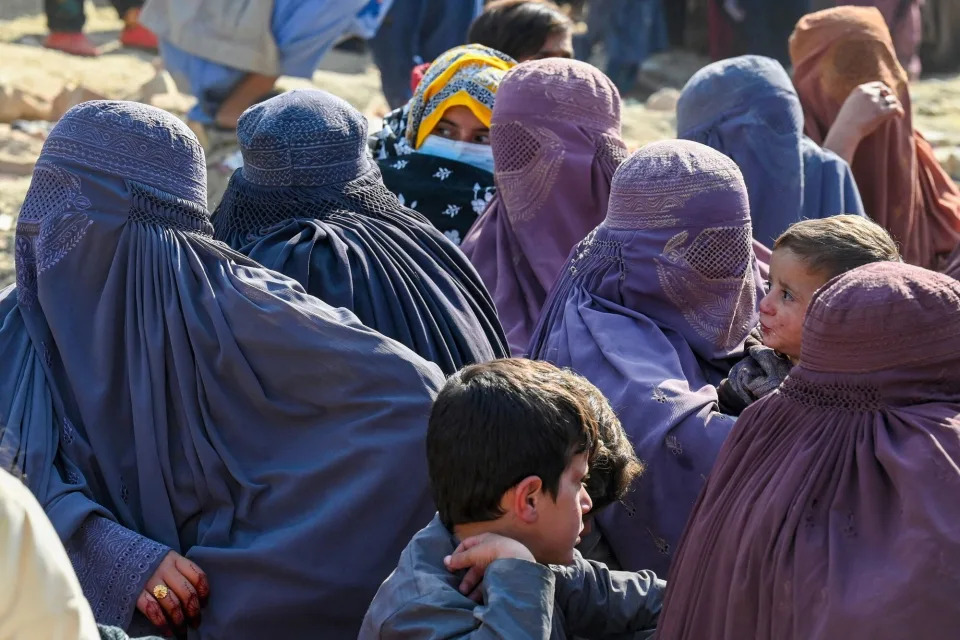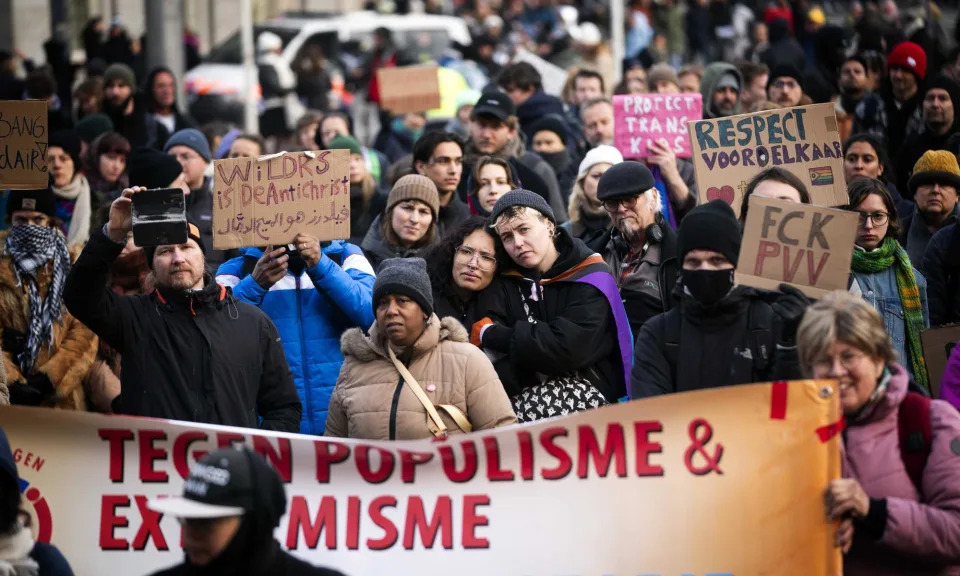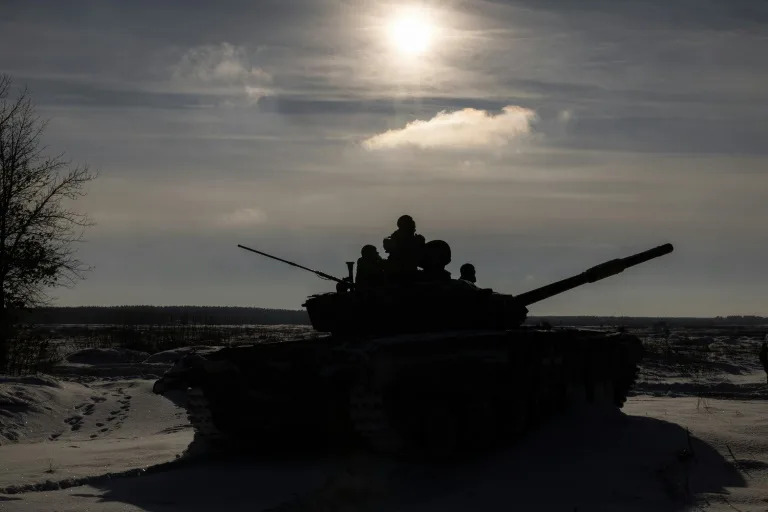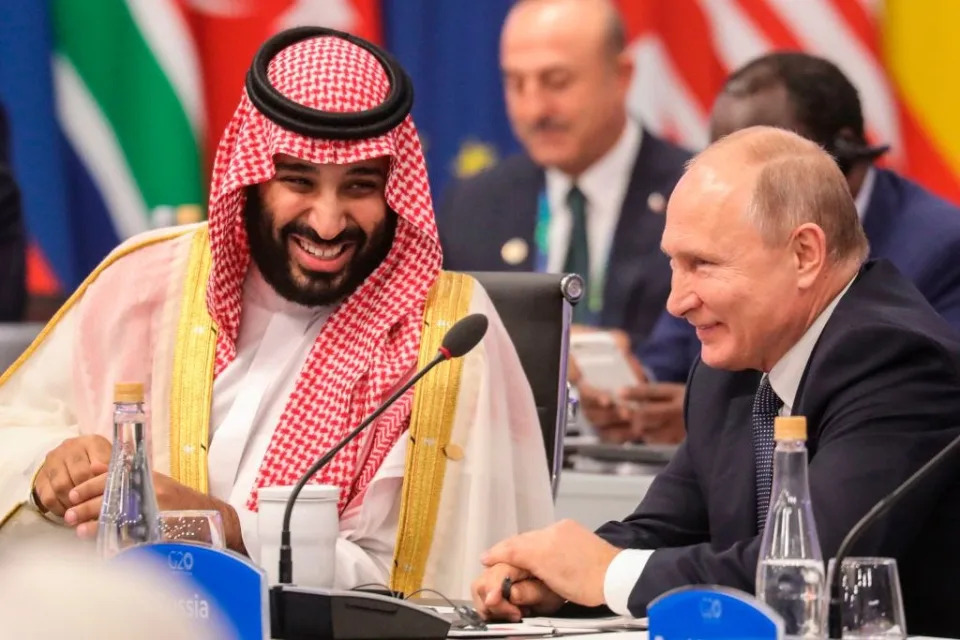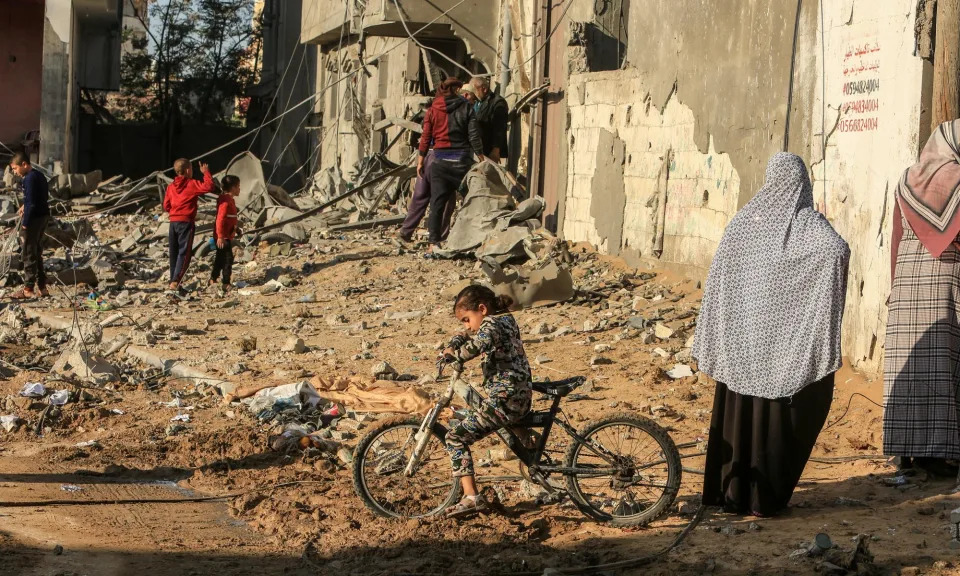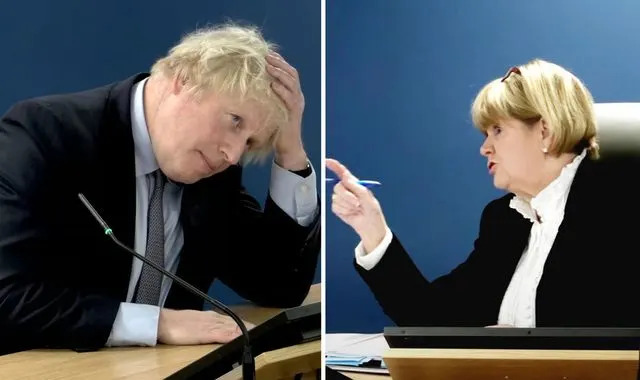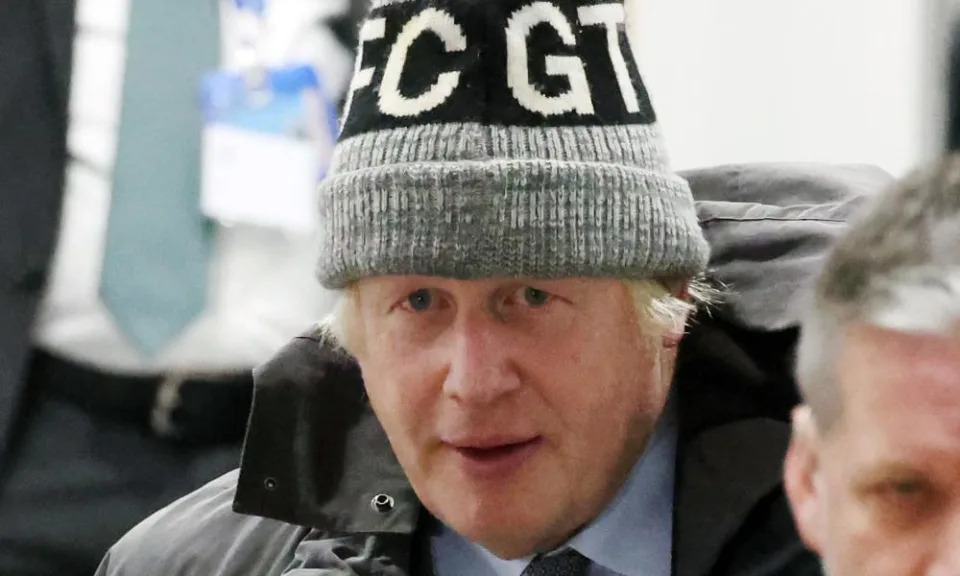How Ukraine gave up its nuclear weapons in exchange for hollow security guarantees
The New Voice of Ukraine
Wed, 6 December 2023
DRAMATIS PERSONAE

Mikhail Gorbachev
Leader of the Soviet Union from 1985 to 1991
Leonid Kuchma
The second president of Ukraine

Bill Clinton
42nd President of the United States
Leonid Kravchuk
Ukrainian politician

George H. W. Bush
President of the United States from 1989 to 1993
LONG READ
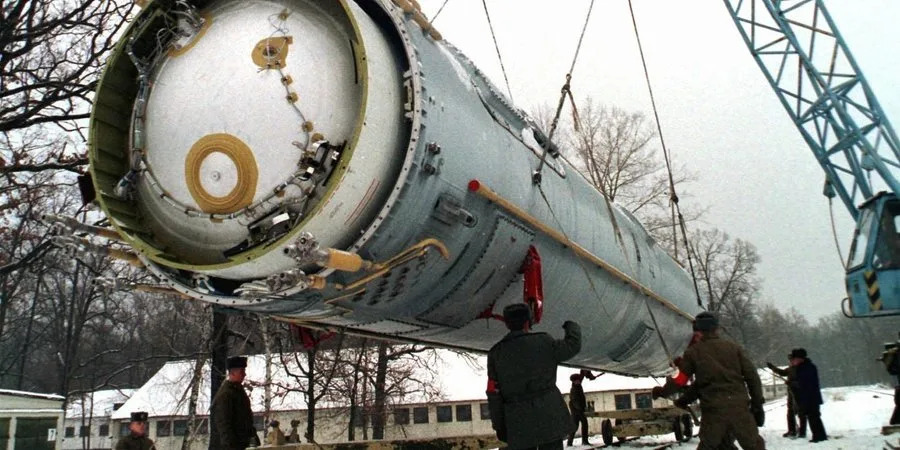
Preparation of the SS-19 ballistic missile for dismantling at the base in Vakulenchuk, Zhytomyr region
For three years in the early 1990s, Washington encouraged Kyiv to abandon its nuclear arsenal. In December 1994, having finally gotten the upper hand, the United States provided Ukraine with vague promises of assistance should the young country face military aggression.
On the occasion of the 29th anniversary of the Budapest Memorandum, NV is re-releasing material from its archives which was first published in Issue No. 4 of NV magazine dated February 2, 2018.
Under four hundred words was all that it took to decide the fate of the third-largest nuclear arsenal in the world, which Ukraine had inherited from the Soviet Union.
These words were packaged into six paragraphs, and the entire document, known as the Budapest Memorandum, took up only one and a half pages. It was signed on December 5, 1994, by the leaders of Ukraine, Russia, the United States, and the UK.
From that moment, Kyiv recognized its non-nuclear status and as such joined the Treaty on the Non-Proliferation of Nuclear Weapons (NPT).
In the memorandum signed by then-President Leonid Kuchma, the procedure for the protection of the country voluntarily renouncing its most powerful weapons was merely outlined. In addition, in the Ukrainian and Russian versions, the text was titled as Memorandum on Security Guarantees, whereas in English, it used the word “assurances.” And in the following five points of the document, the United States and the UK did not guarantee, but only confirmed their commitment to: 1) respect the independence of Ukraine within its existing borders; 2) never use any weapon against its territorial integrity; 3) refrain from economic pressure on Ukraine which would threaten its sovereignty; 4) to provide assistance to the country in case of aggression against it; 5) not use nuclear weapons against the country. The sixth and last commitment of the signatories was a promise to advise Ukraine if any of the above five situations arise.
Two days after the summit, the secretariat of the UN General Assembly registered a letter from the permanent representatives of the four signatory countries. "We would be grateful if you had the text of this letter and its appendix (in fact, the memorandum itself), accepted for circulation as a document of the General Assembly," the officials wrote in the message. From Russia, the letter was signed by Sergey Lavrov, the current head of the Russian Foreign Ministry, who recently assured: "We continue to respect the territorial integrity of Ukraine in those borders that were formed after the referendum in Crimea and after the reunification of Crimea with the Russian Federation."
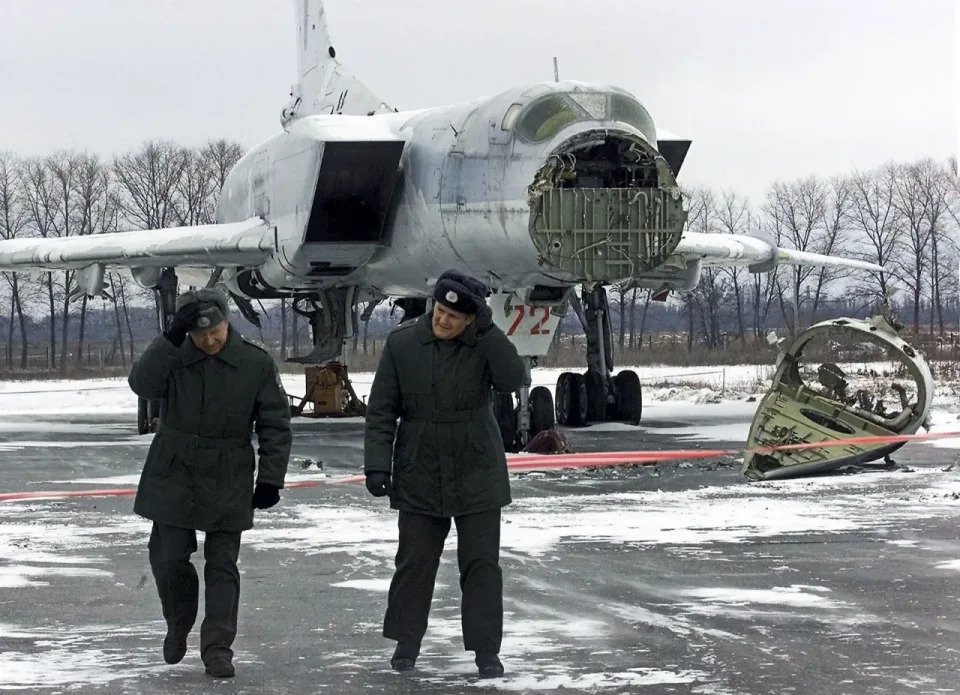
Ukrainian Tu-22 strategic bomber being dismantled AP
Catching the moment
On Sunday, February 12, 1989, three weeks after his inauguration, President George H. W. Bush gathered six leading experts on the Soviet Union at his home in Kennebunkport. They consulted in the bedroom — the only room that was heated in winter. "I am not very interested in political recommendations regarding the USSR. That can wait," Bush said. "First, we need to know what's going on there and what we're dealing with."
At that time, the Soviet Union was already crumbling before our eyes. Opposition movements had recently declared themselves in all the sister republics. The Kremlin suppressed their activity by force.
The January 1991 events in Lithuania were the most revealing. There was an uprising in Vilnius, during which Soviet paratroopers and the Alpha special forces unit stormed the opposition-held television center. Fifteen protestors were killed, the Kremlin blocked gas deliveries to the republic, and all of this was shown live by the Western media. Soviet leader Mikhail Gorbachev denied giving the order to fire on the protestors, but his worldwide popularity as a reformer suffered greatly because of the events.
On the eve of the London Summit of the Seven World Leaders (G-7) in May 1991, the world press trumpeted the economic collapse of the Soviet Union and its astronomical foreign debts. Gorbachev, who had been invited to attend, was called a "poor communist." Reluctantly, he went to London.
Ed Hewett, Bush's aide, then persuaded his Soviet colleague Andriy Kokoshin, with whom he was preparing a meeting: "For God's sake, just don't ask for money." But the Kremlin urgently needed financial assistance and debt restructuring to strengthen the ruble and to purchase consumer goods.
The humiliated Gorbachev hoped for at least a hint of possible membership in the G-7, but he was dismissed as a careless schoolboy. Then he started talking about reducing nuclear weapons with the confidence that this was his "trump card". Bush was waiting for exactly that, and on July 30, he was already in Moscow.
The first conversation with Gorbachev, already the president of the USSR, was spoiled by the news of the murder of six Lithuanian customs officers by a group of unknown persons. “Indignant at the fact that it was Bush who informed him about the violence committed on what was, in his opinion, still Soviet territory, Gorbachev declared: 'This is the first I've heard of this’ and ordered his subordinates to find out what happened,” writes Strobe Talbott (Bush's adviser on the USSR) in the book At the Highest Levels: The Story of the End of the Cold War.
In private conversations at Gorbachev's dacha, Bush gently insisted that Moscow recognize the independence of the three Baltic republics. The master of the Kremlin asked to give him one more day to think, but at the end of the visit, he did not budge on this issue.
However, the leaders of the two countries signed an agreement on the reduction of strategic offensive weapons (START-1) on 47 pages and 700 sheets of protocols. Both signed the document with fountain pens made of the same metal as the medium-range missiles banned by the treaty.
The next day, August 1, Bush left for Kyiv.
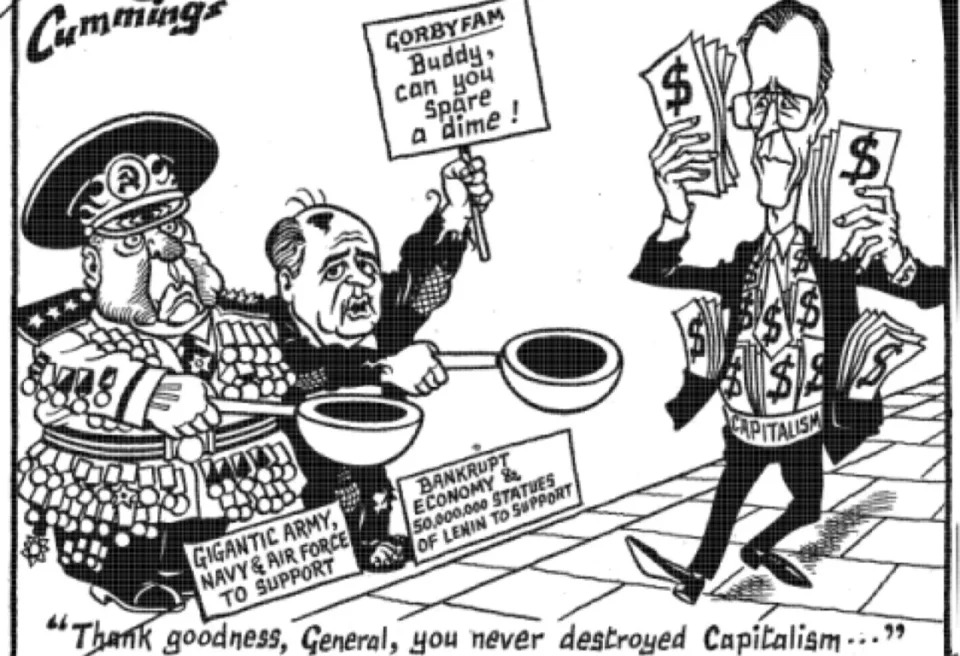
1990 cartoon depicting Gorbachev begging H.W. Bush for cash AP
Chicken Kyiv
In March 1991, nine republics of the USSR held a referendum on the renewal of the Union Treaty. The Baltic states, Georgia, Armenia, and Moldova did not participate. In the referendum, 70% of Ukrainians voted to preserve the Union.
But at the same time, in the Lviv, Ternopil, and Ivano-Frankivsk oblasts, the referendum also included the question, “Do you want Ukraine to become an independent state?” 88% of citizens answered "yes." In particular, and because of these sentiments, Kyiv was in no hurry to sign the updated union treaty.
Bush flew to the Ukrainian capital to calm these centrifugal forces, but in fact only intensified them. Gorbachev refused to fly with Bush so as not to be in his shadow. In his stead, he sent Vice President Gennady Yanaev, an old apparatchik. “The Ukrainians took advantage of his presence to show their guts to the Kremlin,” writes Talbott. Hewett noted that they treated him more like ‘the head of the All-Union Association of Lepers.’ During the breakfast held between the U.S. and Ukrainian delegations, the languages of communication were English and Ukrainian. Yanaev did not speak either of them, and his face sometimes showed boredom, then irritation.”
Then came Bush's historic address to the Verkhovna Rada, the Ukrainian parliament. It had been prepared over the course of several weeks, and the final text was drawn up by Condoleezza Rice, then an assistant to the president. The head of the White House did not condemn Ukrainians’ desire for independence, but directly called on them to remain in union with Russia.
"Freedom is not the same as independence," said Bush. “Americans will not support those who seek independence to replace tyranny from the center with local despotism. They will not help those who promote suicidal nationalism based on ethnic hatred.”
Although the Rada responded to Bush's speech with applause, the last sentence angered many in the chamber. Ivan Drach, the leader of the People's Movement, the most powerful party which stood for Ukraine’s sovereign rights, declared, “Bush came here as an envoy of Gorbachev. He spoke about Ukrainian independence no less radically than our own communists!"
Soon, the New York Times published a column by William Safire, a speechwriter for former President Richard Nixon. He accused Bush of pandering to Moscow's hegemony against the course of history. As an illustration, Safire mentioned the president's speech in the Rada, calling it "stunning, in the style of Chicken Kiev speech.” This moniker soon became a meme and continued to affect the president greatly.
Just a few days later, on Aug. 18, 1991, Communist Party officials, led by the same Yanaev, tried to force Gorbachev out of office and curtail the perestroika. But by Aug. 22, the conspirators were in handcuffs, and one by one the Soviet republics declared independence.
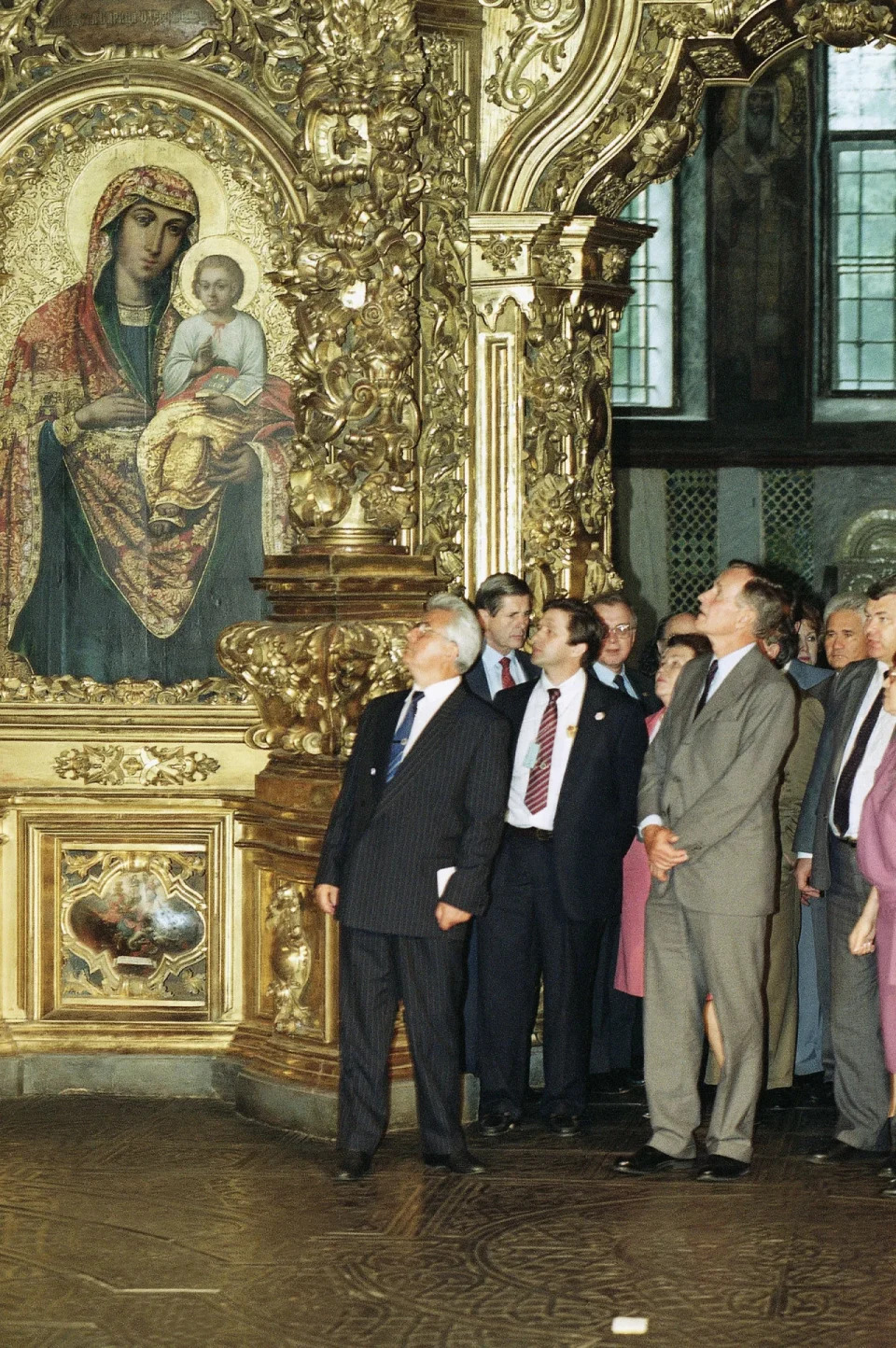
Kravchuk and H.W. Bush in Kyiv's St. Sophia Cathedral, 1991 AP
A difficult divorce
In December 1991, the leaders of Ukraine, Russia and Belarus reached an agreement on withdrawing from the USSR. Since Presidents Leonid Kravchuk, Boris Yeltsin, and the Chairman of the Parliament of the Belarusian SSR Stanislav Shushkevich signed the document late at night, they informed Bush about it immediately. While it was daytime in the United States, Gorbachev was asleep, and would have to wait until morning.
A couple of weeks later, the Soviet president resigned.
The West won the Cold War, but now, in addition to Russia, the successor of the USSR, independent Ukraine, Belarus, and Kazakhstan joined the ranks of nuclear powers.
As of the end of 1991, Kyiv inherited 176 intercontinental ballistic missiles: 130 liquid-fueled SS-19s with six warheads each and 46 solid-fueled SS-24s with ten warheads per missile. It also had about 40 strategic bombers, along with 1,514 to 2,156 strategic nuclear warheads and from 2,800 to 4,200 tactical ones.
With economic carrots and sticks, Washington led Ukraine, Kazakhstan, and Belarus to joining START-1 in Lisbon in May 1992. Alma-Ata and Minsk soon accepted the NPT, after which they immediately began to get rid of their nuclear arsenals. Kazakhstan even managed to sell 600 kg of uranium from dismantled warheads to the United States.
The Verkhovna Rada ratified the Lisbon Protocol only six months later, agreeing to surrender 42% of the nuclear arsenal with thirteen conditions on safety and financial compensation.
Russia has constantly provoked resistance to giving up nuclear weapons. In 1992, the Russian Supreme Soviet began to study whether Crimea was legally transferred to Ukraine. A year later, Moscow parliamentarians declared Sevastopol to be a Russian city. Boris Yeltsin, President of the Russian Federation, said that he was ashamed of this decision, but the confrontation only grew.
In November 1993 in the Crimean town of Massandra, the presidents of Russia and Ukraine agreed on a 50/50 division of the Black Sea Fleet. Kyiv did this in order to repay an $800 million natural gas debt to Moscow. However, 80% of the ships in the fleet raised Russian flags, and Yeltsin did not react to this in any way.
In March 1994, referenda were held simultaneously in Crimea and Donbas, despite Kyiv's declarations that they were illegal. More than 80% of the inhabitants of the peninsula demanded dual citizenship — Ukrainian and Russian — and wanted greater powers for the Crimean President. In February, Yurii Meshkov was elected to this post. Residents of Luhansk and Donetsk Oblasts voted in favor of a federal system and Russian as a second state language.
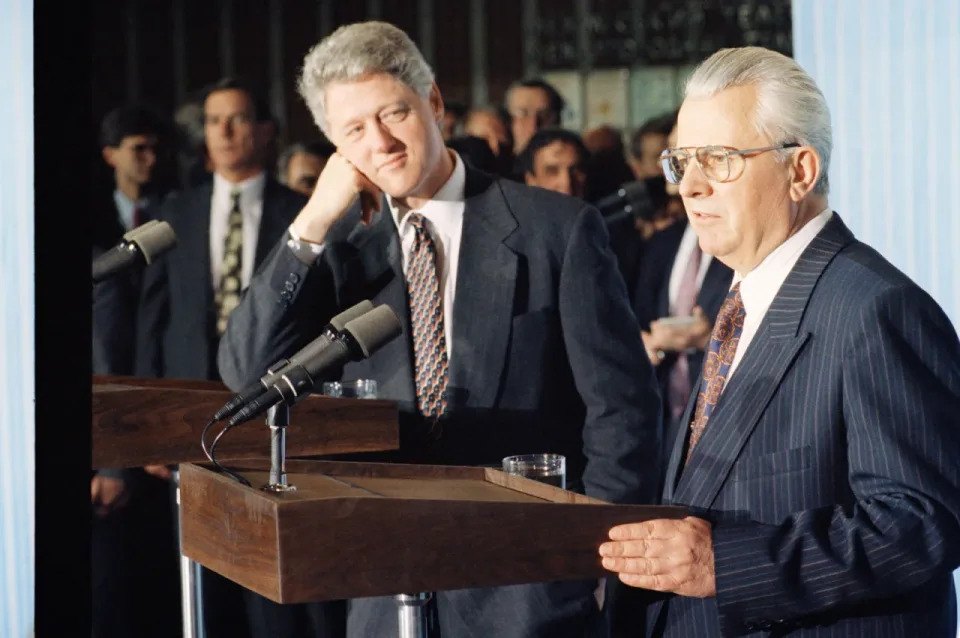
Bill Clinton and Leonid Kravchuk in 1994 AP
Vain hopes
Throughout 1992, Kyiv and Washington assessed the cost of disposing of Ukraine's nuclear arsenal. Kravchuk eventually put the sum at $174 million. Washington added another million. But the Kyiv soon realized that it had greatly underestimated the price.
With the inauguration of Bill Clinton in January 1993, Kyiv had hopes for Washington being more generous.
Roman Popadyuk, the first U.S. Ambassador to Ukraine, wrote in a report: on January 20, on the day of President Clinton’s inauguration, the ambassador was visited by Dmytro Pavlychko, the head of the international affairs committee of the Verkhovna Rada. He handed Popadyuk a draft treaty, according to which the United States would undertake to provide military aid to Ukraine in the event of an attack on it.
The ambassador also reported on Kravchuk's phone conversation with the White House on June 12, 1993: “[Clinton] expressed his willingness to extend food credits and grants. From the G-7, Kravchuk requested funding in the amount of $100 million for small businesses, a stabilization fund between $1 and $1.5 billion, and $300 million for privatization and solving problems with Chornobyl.”
But back in March, the head of the Ministry of Foreign Affairs, Anatolii Zlenko, called for an amount of $2.8 billion. His subordinate, Oleh Bilorus, who was Ukraine’s ambassador to the United States, had already announced $3 billion in compensation and the same amount for disposal costs.
Meanwhile, then Prime Minister Leonid Kuchma convinced the Rada to keep 46 solid-fuel missiles, which were the most effective ones.
The statement from Kuchma –the previous director of Pivdenmash, the missile factory at which the nuclear power of the USSR was forged – alarmed the West for good reason.
Stops on the way
Clinton paused until Kravchuk tried to take an even stronger position. On January 14, 1994, a summit of the leaders of Russia, Ukraine, and the United States on disarmament issues was scheduled in Moscow. But on the eve of the meeting, the press reported that Kravchuk was unlikely to take part in it, as he would be busy receiving the President of Kazakhstan.
Clinton apparently found out about this while already on the way to Russia on January 12. He dialed a Ukrainian colleague directly from aboard Air Force One, informing him that he would fly to Kyiv before Moscow. In Boryspil, Kravchuk waited half an hour in the cold for his guest to disembark his plane. They spoke for an hour and a half right there at the airport.
“Clinton and Christopher [Warren, the Secretary of State], who were not in the habit of reprimanding heads of state, made an exception this time,” They told Kravchuk as bluntly as possible that if he reneged on the agreement already reached, it would be a serious step backwards in Ukraine's relations with both Russia and the United States." Kravchuk, who, according to Talbott, was "shaking all over," promised Clinton not to throw out any tricks at the last minute.
Two days later, in the Russian capital, the three presidents signed a joint statement on the conditions for the accession of Russia and Ukraine to the NPT. Moscow received $60 billion for reducing its nuclear arsenal, while Kyiv agreed to completely dismantle its own in exchange for assurances of U.S. support and $900 million.
“I said that we should agree: the word guarantee in the English document will be understood as an assurance,” writes ex-U.S. ambassador to Ukraine Stephen Pifer, who was a member of the commission for the preparation of the statement. “It was important for us, as in our language, guarantees are like a commitment to NATO or Japan – it presupposes a response by U.S/ forces. We explained to the Ukrainians that in case of a violation of the memorandum, we are not ready to give Ukraine military guarantees. Kyiv understood this. It was their choice."
The statement fundamentally contradicted the Lisbon Treaty on the partial disarmament of Ukraine. The Verkhovna Rada accused Kravchuk of exceeding his powers, and he agreed to early presidential elections, which he lost to Leonid Kuchma.
The former Pivdenmash director quickly forgot about the 46 missiles. In November, four months after his election, new Ukrainian President Kuchma convinced the Rada to have Ukraine join the NPT as a non-nuclear country. For some reason, he spoke about the closed cycle of production of nuclear warheads, for which ten years and $200 billion would be needed. “Who will stand up and say to whom all the property of Ukraine should be pledged in order to make it happy with its own nuclear arsenal?” asked the new president.
On November 18, the Rada approved the decision to abandon the country’s nuclear weapons, but with the caveat that the NPT would be ratified only after clear security guarantees from the United States and Russia.
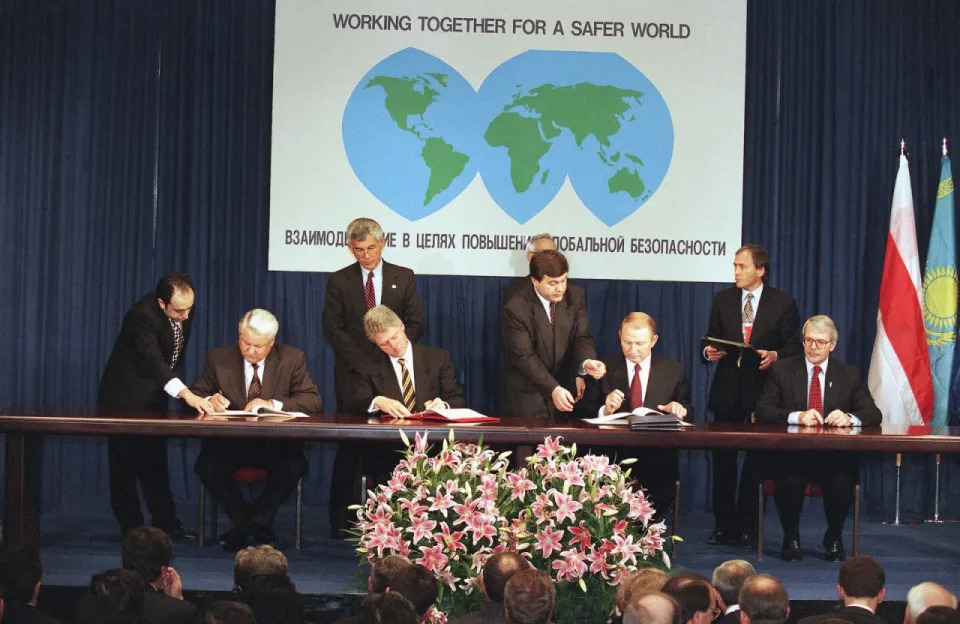
December 1994 summit where Ukraine agreed to dismantle its nuclear arsenal AP
Behind the scenes of the summit
At the beginning of December 1994, the heads of 53 states arrived in Budapest. Despite all the interest in the summit, its organization was not up to par. The negotiations took place in the four-star Novotel hotel, where there were only six rooms for official meetings.
Dmytro Tkach, the Ukrainian ambassador to Hungary, was responsible for arranging the Ukrainian delegation. The organizers provided only one car – just for the president. The Ukrainian Ministry of Foreign Affairs had no money, so the delegation was accommodated at the hotel itself. The head of Kuchma’s administration at the time, Dmytro Tabachnyk, ordered only the presidential suite in the old Gelert Hotel for Kuchma himself.
Tkach asked the Novotel's director for his office for meetings of the head of the Ukrainian delegation. In two days, Kuchma held 26 negotiations there.
On the eve of the signing of the memorandum, the Kazakh diplomats made a fuss, arguing that the United States should give guarantees to their country and Belarus, as well. Kyiv did not agree to accept Minsk and Alma-Ata into its company, since they had given up their weapons earlier. Tkach succeeded in persuading the Americans to have Clinton and Yeltsin separately sign security assurances with the Kazakhs and with the Belarusians. "[Alexander] Lukashenko and [Nursultan] Nazarbayev each owe us a bottle," Kuchma blurted out after learning about it.
But even so, one of the Ukrainian diplomats drank too much during the summit and fell asleep in the bathroom with the tap open, flooding the three lower floors. “The repairs cost a lot of money,” recalls Tkach. “I explained to the director that this diplomat will be fired from his job, and even if he sells an apartment in Kyiv, he won’t be able to settle the bill. It's good that we had a good relationship with the hotel, and that it was owned by the state at the time. The case was settled.”
After signing a memorandum that duplicated the Moscow statement, the different understanding of the guarantees was soon forgotten – first and foremost because none of the strategists of the signatory countries was able to aticipate possible threats to Ukraine at that time.

